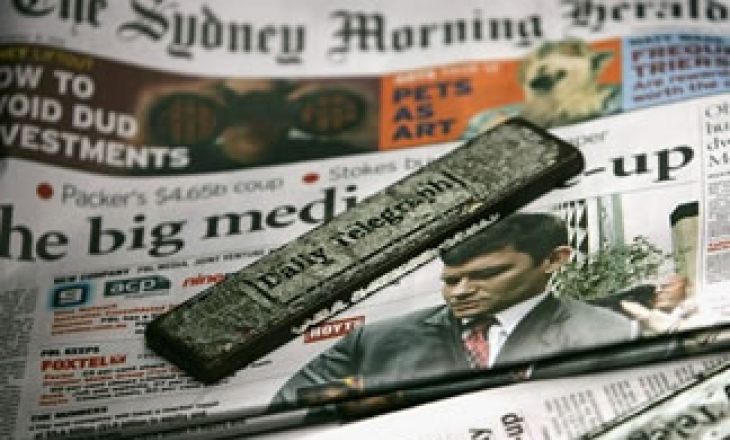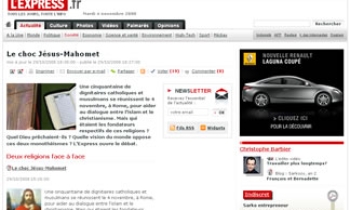Heads have begun to roll in the Australian media industry with the chief executive of FairFax Media Limited, David Kirk, putting in his papers last week. Kirk left the 120-year old media giant after serving three years in the organisation that is currently facing a shrinking advertising revenue and a collapsing share price in the face of a severe economic meltdown.
Kirk’s resignation came as a rude blow to the Australia’s oldest newspaper company that has already witnessed the exit of Alan Oakley of the Sydney Morning Herald and Andrew Jaspan of the Age newspaper (both owned by the FairFax group) within a span of last three months. A Financial Times report quoted media analysts saying that Kirk was “a victim of the global credit crisis and Fairfax's struggle to compete in the new media age.”
Fairfax has, since, named Brian McCarthy as chief executive. McCarthy, who also became managing editor on December 10, was Fairfax's deputy CEO and head of the publisher's Australian operations. He was the former managing director of Rural Press, which merged with Fairfax earlier this year after Australia relaxed media ownership rules.
The FairFax group publishes the Age, the Sydney Morning Herald and the Australian Financial Review in the country, among others. However, the company has hit a rough financial patch thanks to the slowing advertising environment and the company’s enormous debt load. In addition to declining circulations and weak advertising, their classified advertising division has been particularly badly hit as internet sites cut its market share. Fairfax Media’s shares have been down 68% this year, compared to a 44% slide in the overall market.
According to a report in the Australian, the company’s shares closed at $1.465 on December 5, which was 70 per cent below the peak above $5 last year. The condition had worsened last week when their shares were worth lesser than the $1.30 cover price of the Sydney Morning Herald. The report also quoted the Australian prime minister, Kevin Rudd, saying, “It’s been a tumultuous year, with four of our metropolitan dailies changing editors in just four months (including the News Limited pair Bruce Guthrie at the Herald Sun and David Penberthy at the Daily Telegraph). We are in a very tough economic environment."
The Financial Times also said that as a part of a rationalisation programme, the group has laid off a staff of 550, which includes 100 editorial positions this year alone with the aim to achieve annual savings of A$ 50m ($32m). Eric Beecher, a former editor of the Sydney Morning Herald and an independent media proprietor as part-owner of the crikey.com website said that Fairfax's problems rested with board. "Fairfax Media is suffering from an almost total absence of direction, strategy, comprehension of its problems or understanding of its business," he said.
Even as an Australian report revealed that the FairFax Group was also mulling over some rather tough decisions about its future, the company announced a dividend cut. "The board has decided to temporarily reduce its dividend payout ratio to approximately 20 per cent for the interim dividend payable in March 2009 to preserve capital to facilitate debt reduction," a statement from the company said.
The management also expressed its concerns about the leadership and figuring the possible names who could lead the company that’s been in a lurch facing a terminal decline in its classified advertising revenue during the meeting with the company’s non-executives directors that took place in Kirk’s absence. The meeting has even sparked market speculation that both directors John B Fairfax and his son Nicholas were planning to install their own man since they have already lost about $700 million in the shares sell-off, the Australian said.
Kirk, according to the Sydney Morning Herald, had hoped to avoid a damaging leadership struggle. Market experts said that while Kirk had been perceived as a dealmaker, McCarthy's appointment signalled that it was time to knuckle down. McCarthy, well-known for his aggressive costcutting, is likely to take the knife to Fairfax's balance sheet despite the company sacking 550 people in August. They believe the change is the right move.










